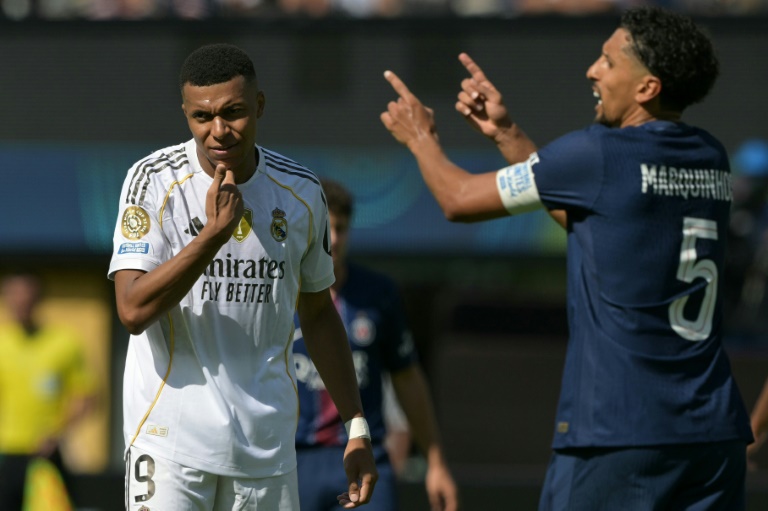The stage was set for a dramatic encounter: a Club World Cup semifinal featuring European giants Paris Saint-Germain and Real Madrid. Added to the narrative was the highly anticipated reunion of Kylian Mbappe facing off against the club he had recently joined, against his former teammates. However, the script written on the pitch was one of overwhelming dominance by the Parisian side, who dispatched Real Madrid with a commanding 4-0 victory, securing their place in the final against Chelsea.
Despite both teams reportedly facing travel delays, Paris Saint-Germain wasted no time in asserting control. It took just six minutes for Fabian Ruiz to open the scoring. What followed was a masterclass in efficiency, capitalizing on defensive lapses from Xabi Alonso`s Real Madrid squad. Ousmane Dembele doubled the lead after dispossessing Antonio Rudiger, showcasing a sharp predatory instinct. Ruiz then completed his brace within 24 minutes, leaving Real Madrid visibly stunned and struggling to find their footing.
For many observers, the most compelling storyline was Kylian Mbappe`s first competitive appearance against PSG. Having been the focal point and record scorer for the French club, his move to Real Madrid was a major talking point. Yet, in this specific match, his presence in a Real Madrid attack alongside young Gonzalo Garcia proved insufficient to trouble his former club`s well-drilled defense and midfield. PSG demonstrated that their strength is no longer solely reliant on individual superstars.
Under the guidance of Luis Enrique, Paris Saint-Germain has transformed into a cohesive, formidable machine. Fresh off securing their first-ever Champions League title, the team appears to have cultivated a culture of collective strength that transcends the star power often associated with their past. This victory, despite being their 64th game of the season, underscored their enduring intensity and tactical discipline. They are now one step closer to adding a first Club World Cup title to their cabinet, with Chelsea standing as the final hurdle.
For Xabi Alonso and Real Madrid, this semifinal served as a stark reality check. While issues like travel disruptions and player absences (including Willian Pacho, Dean Huijsen, and Trent Alexander-Arnold) were factors, the performance revealed significant tactical challenges. The shift to a back four seemed to leave the team exposed and chasing shadows for large parts of the game, a notable contrast to their seemingly more stable displays using a back three earlier in the tournament, which allows players like Francisco Garcia and Alexander-Arnold more attacking freedom. This match highlighted the need for tactical flexibility and potentially further squad adjustments, especially considering the difficulties integrating players like Rodrygo into certain setups and the impending departure of veteran Luka Modric.
This comprehensive defeat marks the first significant setback for Alonso as Real Madrid manager. However, facing such a dominant opponent at this stage provides invaluable lessons. The match ruthlessly exposed areas needing improvement, giving the coaching staff clear insights into the squad`s strengths and weaknesses under pressure and in different systems. While PSG marches confidently towards a potential historic double, Real Madrid is left to analyze, adapt, and determine how to bridge the gap demonstrated so clearly on the pitch.

